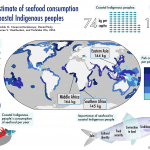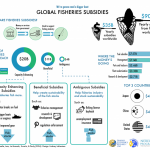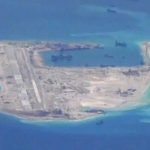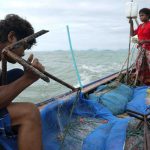By Matilda Petersson, Nereus Program Fellow at Stockholm Resilience Centre
The global oceans provide hundreds of millions of people with livelihoods, food and nutritional security, and are crucial for employment, economic development, and export earnings in many countries and coastal communities around the world. The status of these important ecosystems and its fisheries resources are however rapidly declining, following decades of unsustainable exploitation patterns, overcapacity, and unsuccessful governance interventions. Climate change and rising ocean temperatures are adding complexity and uncertainty to this already difficult situation, as effects like ocean acidification, coral bleaching, and changing fish migration patterns become increasingly visible.
At the same time, there is considerable momentum in the international community today for enhancing the sustainability of our global oceans. The upcoming high level United Nations Ocean Conference, between the 5th-9th of June this year, will be the first conference of its kind that explicitly focuses on the implementation of one of the internationally agreed Sustainable Development Goals (SDGs). The overarching theme of the Conference is to identify, build, and support partnerships, bringing together a broad range of actors representing governments, civil society, and the private sector for the implementation of SDG number 14 on the oceans.
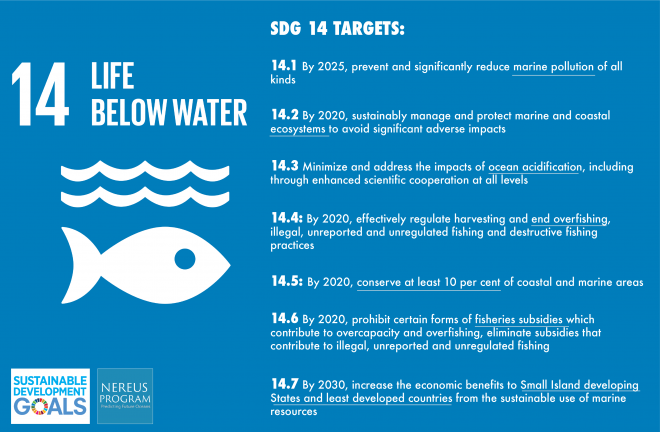
The focus on partnerships and increasing the involvement of civil society and the private sector represents a relatively recent development in international cooperation around environmental issues, that used to be primarily focused on governments negotiating over binding international treaties. Some believe that this shift holds major promise for finding solutions to shared environmental problems, since actors from civil society and private sector can increase the participation of marginalized groups, complement existing knowledge, resources, and information, and fill gaps in regulation and implementation put in place by governments and UN agencies. Others believe that binding international treaties is the preferred way to go, since partnerships are difficult to hold accountable and may empower already powerful actors in international politics without any guarantee of implementing the SDGs.
In my view, the most pressing issue is not necessarily which approach is most appropriate, but rather, given that partnerships for sustainable development are becoming increasingly common – how can we make sure that they are contributing to the greatest extent possible in delivering just and effective solutions to environmental problems in the oceans? It is therefore encouraging that the UN Conference intends to identifying best practices and success factors for partnerships. Yet, we also need to consider how we can learn from previous mistakes and less successful aspects of existing partnerships and how to enhance the potential of partnerships to fill existing gaps.
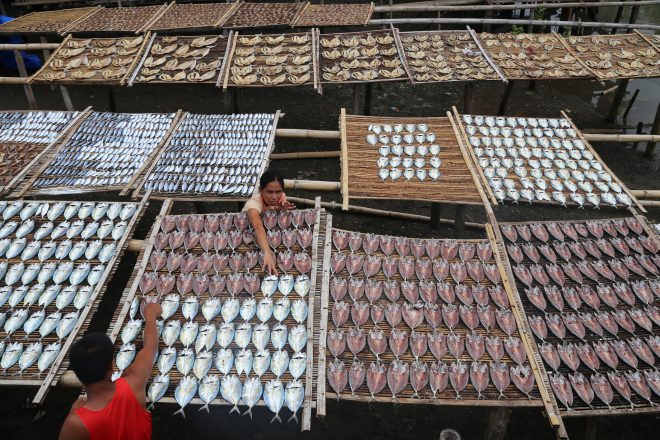
Partnerships must consider the needs of developing countries — many of which will be hard hit by climate change effects. Image: “Dried sardines, Olingan, Dipolog City, Philippines.” Photo by Dr. Leocadio Sebastian, 2013, WorldFish.
In order for partnerships to be successful, they need to be better at including representatives from developing countries and communities in the global south and other marginalized groups such as fishers and indigenous groups, since these actors still remain poorly represented in partnerships. This is particularly important when, for example, considering that the tropics are expected to be particularly vulnerable to climate change, both in terms of large-scale environmental effects and as many countries in the region have limited governance capacities to deal with such changes. Moreover, given that large parts of global catches come from small-scale fisheries in developing countries, partnerships, such as those involved in certification of sustainable fisheries, need to find ways of incentivizing these fisheries to get certified. How can partnerships improve their uptake in the global south and how can the UN Ocean Conference contribute to making existing and new partnerships more inclusive? This is crucial for enabling just and effective international cooperation around sustainable fisheries and healthy oceans.
Moreover, in order for partnerships to be successful, they need to address existing gaps in regulation, policy areas, or implementation where governments so far have failed to deliver on sustainable fish stocks and healthy oceans. However, many existing partnerships have been found to be mainly addressing policy areas that are already densely populated by existing international treaties or regulations and thus seem to be playing a complementary role. The Ocean Conference will therefore provide an excellent opportunity for discussions on comparing the focus of partnerships with geographical and policy areas where we are lacking sufficient measures and the most important gaps hindering implementation of SDG-14 are. And, in those areas where there are existing efforts, how can we make sure that partnerships contribute in the best possible way that complements efforts lead by governments and by other partnerships?
Since the UN Ocean Conference is the first of its kind addressing one of the SDGs, the conference and its outcomes are particularly important. Will it be able to use the existing momentum and in this way, set the pace for other similar conferences and moving the implementation of these SDGs forward?
On May 31, the Nereus Program will publish the report “Oceans and the Sustainable Development Goals: Co-Benefits, Climate Change, and Social Equity”. Subscribe to our newsletter to receive this report in your email box. We will also be hosting a side event at the UN Oceans Conference on June 9.

MATILDA PETERSSON, MSC, SOCIAL-ECOLOGICAL RESILIENCE FOR SUSTAINABLE DEVEOPMENT
Stockholm
Matilda Petersson has a background in Political Science with a specialization in Environmental Politics. Her PhD project will investigate whether and under which conditions inclusive governance systems can contribute to effective governance of global marine resources. In her previous work, Matilda has explored the diversity and participatory patterns over time among non-state actors in Regional Fisheries Management Organizations (RFMOs). Before starting her PhD, Matilda worked as an international consultant for the UNFAO (Fisheries and Aquaculture Department) and did a traineeship at the Cabinet for the EU Commissioner for Environment, Fisheries and Maritime Affairs.



